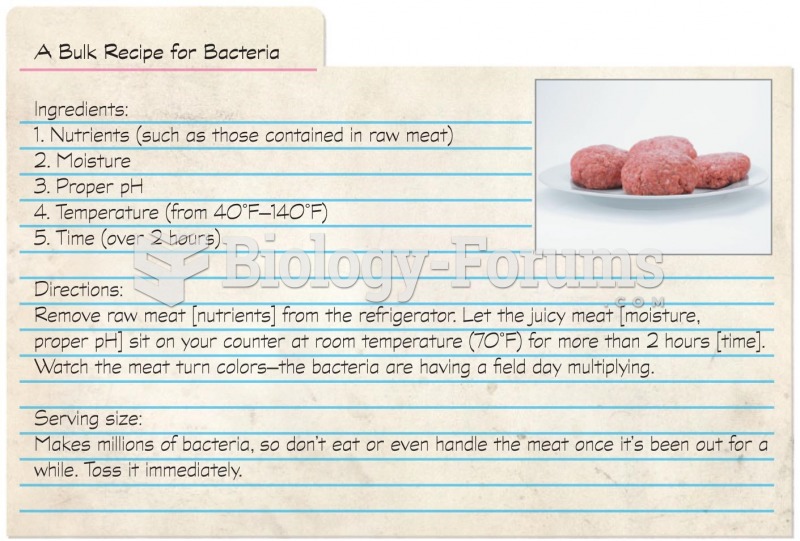|
|
|
Cyanide works by making the human body unable to use oxygen.
Hip fractures are the most serious consequences of osteoporosis. The incidence of hip fractures increases with each decade among patients in their 60s to patients in their 90s for both women and men of all populations. Men and women older than 80 years of age show the highest incidence of hip fractures.
Although not all of the following muscle groups are commonly used, intramuscular injections may be given into the abdominals, biceps, calves, deltoids, gluteals, laterals, pectorals, quadriceps, trapezoids, and triceps.
In the United States, an estimated 50 million unnecessary antibiotics are prescribed for viral respiratory infections.
The calories found in one piece of cherry cheesecake could light a 60-watt light bulb for 1.5 hours.







